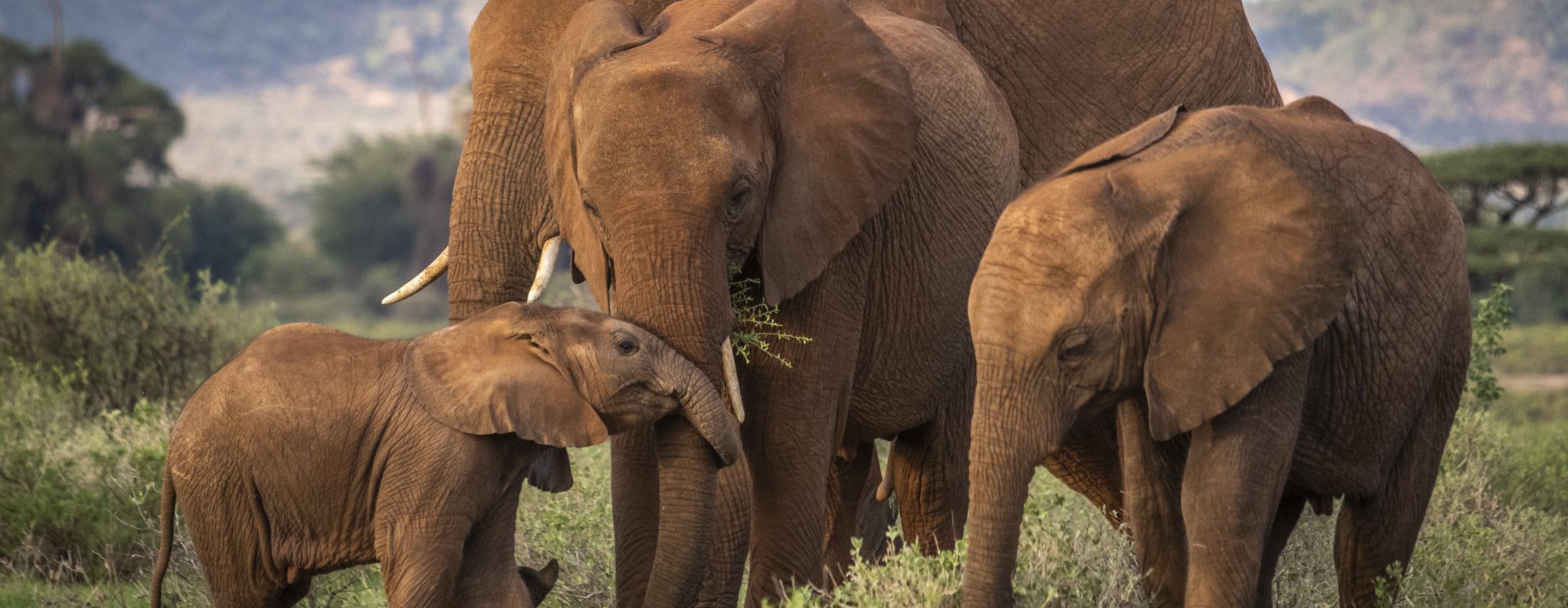Each year, we accept a small number of interns to Save the Elephants in Kenya. These internships comprise 1.5 month professional placements with one of our research projects in Kenya, designed for university graduates pursuing a career in conservation, with skills in scientific data collection and analysis. Structured around our three pillars, these internships harness the skills of interns while involving them directly with projects. Interns contribute to our Long Term Monitoring work, behavioural studies, human-elephant conflict or conservation education.Internships at our Samburu camp are highly competitive (we typically accept only three interns per year), so potential candidates should carefully read the “frequently asked questions” section below before applying. For internships at STE Samburu project please email your CV and cover letter indicating the period applying to us at our head office in Nairobi ([email protected]). Applications should only be sent during the application period, which typically lasts from November 1st to December 31st.
 © Robbie Labanowski
© Robbie Labanowski
Internships – Samburu Research Center
Frequently asked questions
Our interns are Kenyan citizens over 18 years of age, and are selected by their academic qualifications as listed on their CV’s and cover letters explaining why they want to intern for STE and, in particular, what skills they can offer our organisation. We normally expect our interns to have completed a degree at a reputable university in the fields of zoology, biological sciences, environmental sciences or geography and to be intent on pursuing a career in this field. We are also interested in accepting interns with higher-level qualifications (e.g. MSc), who are trying to get more experience in the field of conservation biology and ecology. The work available is conservation related, and not tactile or anatomical, thus we do not accept veterinary students. Occasionally, we do accept interns in our Nairobi Head Office who can help us with fundraising, marketing, website and office based projects. Such opportunities do not follow normal application cycles and thus will be advertised specifically when they arise. We don’t encourage school pupils or pre-university gap year students to apply. Internship opportunities for international candidates outside of Kenya are advertised on an ad-hoc basis, and do not follow normal application cycles.
We typically have 3 internship positions available at STE Samburu camp every year. Due to our limited availability of accommodation and desk space at Samburu camp, we can only accept one intern at a time in three different slots. We have three intern seasons: March-April, June-July, and September-October. Applications are open for two months in November and December of the previous year. Applicants should please specify their preferred time of the year to undertake their internship.
We would like interns to commit to 1.5 months of work in our Samburu research camp. Shorter periods are negotiable, but we prefer interns to spend at least 1 month with us, in order to provide them with a more complete and in-depth training.
Internships are unpaid, the cost of food, drinking water, accommodation, laundry, security, internet access (for work purposes only), and any equipment that is used to collect data, is covered by STE. For travel from Nairobi to Samburu and back, interns should cover their transport costs. However, when possible we will try and combine interns travelling from Nairobi to Samburu (and back) with our supply runs. Overseas interns (subjected to the advertisement of internship for international applicants) will have to raise funds to pay for their international flight to and from Kenya, US$35 per night to cover their stay at the camp. International applicants should be aware that proof of a comprehensive travel medical insurance will be requested upon arrival to Kenya.
We will send you a more comprehensive list of equipment once you are accepted as an intern. However, you should expect to bring a laptop with wireless internet capabilities and a comprehensive first aid kit for your personal use. Please note that interns with any kind of medical or physical condition must inform us with full details during the application process. All interns should please bear in mind that some field activities will involve frequent exposition to extreme heat and sun. Malaria is present at our Samburu camp, so we recommend all interns to take suitable precautions before, during, and after their visit to the camp, upon consultation with a medical practitioner.
Every intern is responsible for writing a report to the Research Manager and to the wardens of Samburu and Buffalo Springs Reserve describing the activities undertaken, at the end of the internship period. This report should consist of a useful set of information that can help the conservation and management of the park. This should be submitted before leaving the camp. It is a critical part of the internship as the park waives a large amount of fees for interns coming to stay with STE, and thus need something substantial in return for the betterment of the park. For STE, the main responsibility of the intern is to complete the tasks assigned in the time given. Monthly reports will be expected from interns assigned to one of our Special Intern Projects.
Interns often help our long-term researchers with data analysis or collection. Occasionally we will publish papers or reports on this data and there may be a chance for exceptional interns to be listed as authors or acknowledged on research papers. We are very grateful for interns who go on to help us spread information about human-elephant co-existence and ecological research in general once they return home.

